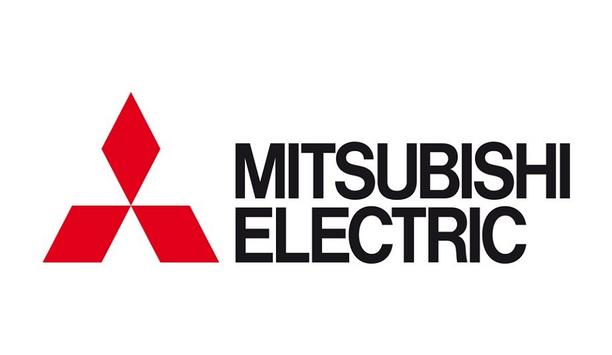Microbusinesses have a vital role in the United Kingdom (UK) economy and the energy retail market, accounting for 96% of all UK businesses (5.7 million), 33% of UK employment and a significant proportion of energy expenditure (£3.4 billion in 2020).
They are usually enterprises employing up to 10 people. When buying energy, most microbusinesses rely entirely on electricity as a source of power and 62% think of energy as a significant cost to their business. Almost all use a broker to get a good deal.
Ofgem regulates energy suppliers
Ofgem regulates energy suppliers, but not brokers. They’ve been looking at the challenges that microbusiness customers have, and in this month – June 2021, they published proposals on a package of reforms, in order to help these consumers get a fairer deal.
It builds on the UK Government’s Energy White Paper, which includes a commitment to ensuring that the retail market regulatory framework covers third parties, including brokers. Now more than ever, these measures are important as businesses re-open their doors and build back from the struggles of the global COVID-19 pandemic.
Microbusiness experience
There are standards that suppliers must stick to when engaging with microbusinesses
There are standards that suppliers must stick to when engaging with microbusinesses, similar to those for domestic customers. For example, suppliers must treat microbusinesses fairly and there are rules that limit capping back-bills to no more than your last 12 months’ energy use.
In 2017, the Competition and Markets Authority introduced rules requiring suppliers to make contract price information clearly available to the smallest microbusinesses on their websites or via a link to a price comparison website.
In 2018, Ofgem required suppliers to report on the number and types of complaints they have from microbusinesses, in the same way they do for domestic customers.
Market not working very well for microbusinesses
Their monitoring suggests the market is not working as well as it should for some microbusinesses. While around three in four microbusinesses are on a negotiated, fixed-term energy tariff, a significant number are on their supplier’s basic default or deemed contracts. So, they’re not engaging in the market and getting access to the best deals.
They’re also concerned that some are overpaying for their energy (up to twice as much for gas and 30% more for electricity), often due to the actions of a small minority of brokers, and by the ways suppliers engage with microbusinesses. After billing and customer service, the third largest energy complaints from microbusinesses were for sales and marketing issues in 2020. Many were for broker sales.
Government, businesses and consumer groups have also raised examples of poor practice by a minority of brokers, such as lack of transparency around commission costs. In one case, they identified a large microbusiness where half of the total contract cost (an estimated £24,000) consisted of broker commission fees that the consumer was not made aware of pre-contract.
COVID-19 pandemic adds to the challenges
The COVID-19 pandemic has added further to the challenges some microbusinesses have
The COVID-19 pandemic has added further to the challenges some microbusinesses have. Ofgem’s monitoring shows payment issues experienced by small and medium-sized businesses, including microbusinesses, increased during the pandemic between January and March this year.
This data gives an early indication of businesses struggling to pay their energy bills, which could lead to increased debt levels over the coming months. They are monitoring this closely to ensure suppliers treat microbusiness consumers fairly, complying with their obligations. This includes how suppliers manage debt when dealing with customers financially impacted by the COVID-19 pandemic.
New protections
Their goal is that microbusiness’ needs and preferences are met by the market, that they can access competitive offerings and that they are adequately protected where necessary.
Through their strategic review, Ofgem have taken steps to understand the microbusiness consumer experience at each key stage of the customer journey and identify the case for reforms.
Proposals published by Ofgem
The proposals they published at the start of June 2021 include actions to support:
- Provision of principal contractual terms: Strengthening existing rules around the provision of principal contractual terms, in order to ensure consumers receive this key information - both pre and post-contract agreement in all cases.
- Brokerage cost transparency: Clarifying and strengthening existing supply license obligations to provide information about brokerage costs on contractual documentation.
- Broker dispute resolution: Introducing a requirement for suppliers to only work with brokers signed up to a qualifying alternative dispute resolution scheme.
- Cooling-off period: Introducing a 14-day cooling-off period for microbusiness contracts.
- Banning notification requirements: Banning suppliers from requiring microbusinesses to provide notice of their intent to switch.
- Information and Awareness: They plan to work collaboratively with Citizens Advice to create new and updated information, so that microbusinesses can access up-to-date guidance and advice, alongside communications, in order to help further boost awareness of how the market operates and their rights as consumers.
Ofgem to support measures with tailored monitoring
Ofgem will support these measures with increased, tailored monitoring through their enduring information requests to larger suppliers serving microbusiness customers. This is a clear signal to industry about the high standards we expect.
They continue to support the UK government, as it prepares to consult on the case for direct regulation of third-party intermediaries, including brokers and price comparison sites serving microbusinesses.
















